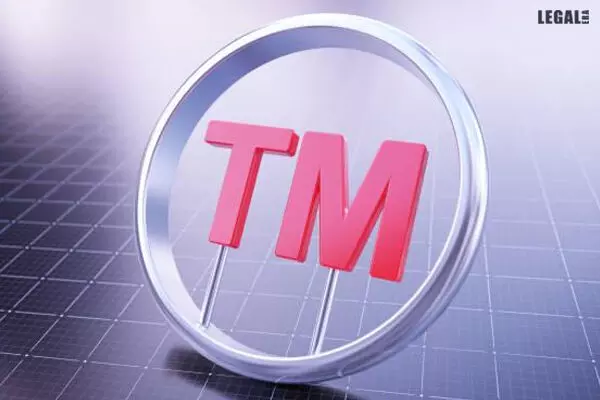- Home
- News
- Articles+
- Aerospace
- Artificial Intelligence
- Agriculture
- Alternate Dispute Resolution
- Arbitration & Mediation
- Banking and Finance
- Bankruptcy
- Book Review
- Bribery & Corruption
- Commercial Litigation
- Competition Law
- Conference Reports
- Consumer Products
- Contract
- Corporate Governance
- Corporate Law
- Covid-19
- Cryptocurrency
- Cybersecurity
- Data Protection
- Defence
- Digital Economy
- E-commerce
- Employment Law
- Energy and Natural Resources
- Entertainment and Sports Law
- Environmental Law
- Environmental, Social, and Governance
- Foreign Direct Investment
- Food and Beverage
- Gaming
- Health Care
- IBC Diaries
- In Focus
- Inclusion & Diversity
- Insurance Law
- Intellectual Property
- International Law
- IP & Tech Era
- Know the Law
- Labour Laws
- Law & Policy and Regulation
- Litigation
- Litigation Funding
- Manufacturing
- Mergers & Acquisitions
- NFTs
- Privacy
- Private Equity
- Project Finance
- Real Estate
- Risk and Compliance
- Student Corner
- Take On Board
- Tax
- Technology Media and Telecom
- Tributes
- Viewpoint
- Zoom In
- Law Firms
- In-House
- Rankings
- E-Magazine
- Legal Era TV
- Events
- Middle East
- Africa
- News
- Articles
- Aerospace
- Artificial Intelligence
- Agriculture
- Alternate Dispute Resolution
- Arbitration & Mediation
- Banking and Finance
- Bankruptcy
- Book Review
- Bribery & Corruption
- Commercial Litigation
- Competition Law
- Conference Reports
- Consumer Products
- Contract
- Corporate Governance
- Corporate Law
- Covid-19
- Cryptocurrency
- Cybersecurity
- Data Protection
- Defence
- Digital Economy
- E-commerce
- Employment Law
- Energy and Natural Resources
- Entertainment and Sports Law
- Environmental Law
- Environmental, Social, and Governance
- Foreign Direct Investment
- Food and Beverage
- Gaming
- Health Care
- IBC Diaries
- In Focus
- Inclusion & Diversity
- Insurance Law
- Intellectual Property
- International Law
- IP & Tech Era
- Know the Law
- Labour Laws
- Law & Policy and Regulation
- Litigation
- Litigation Funding
- Manufacturing
- Mergers & Acquisitions
- NFTs
- Privacy
- Private Equity
- Project Finance
- Real Estate
- Risk and Compliance
- Student Corner
- Take On Board
- Tax
- Technology Media and Telecom
- Tributes
- Viewpoint
- Zoom In
- Law Firms
- In-House
- Rankings
- E-Magazine
- Legal Era TV
- Events
- Middle East
- Africa
Amicable Resolution: Delhi High Court Facilitates Settlement In Cement Trademark Dispute

Amicable Resolution: Delhi High Court Facilitates Settlement In Cement Trademark Dispute
Introduction
In a significant development, the Delhi High Court presided by a bench of Justice Saurabh Banerjee has delivered a judgment in the case of Nuvoco Vistas Corporation Limited vs. Mangalpura Cement Pvt Ltd, highlighting the importance of protecting trademark rights in the cement industry.
Factual Background
The plaintiff, Nuvoco Vistas Corporation Limited, is a company that has been using the trademarks "CONCRETO" and "DURAGUARD" for its cement products. The defendant, Mangalpura Cement Pvt Ltd, was alleged to have infringed the plaintiff's trademarks by using similar marks and packaging.
Procedural Background
The plaintiff filed a suit against the defendant, seeking relief for trademark infringement and other related claims. During the pendency of the suit, the parties entered into a settlement agreement, which was placed on record before the court.
Issues Involved
1. Trademark Infringement: Whether the defendant's actions constitute infringement of the plaintiff's trademarks.
2. Settlement Agreement: Whether the settlement agreement entered into between the parties is lawful and binding.
Contentions of the Parties
Plaintiff's Contentions: The plaintiff alleged that the defendant's actions infringe their trademark rights and sought relief.
Defendant's Contentions: The defendant agreed to the terms of the settlement agreement and undertook to cease using the impugned marks and packaging.
Reasoning and Analysis
The settlement agreement was deemed legal and binding on both parties by the court after a thorough review. The court observed that the defendant had agreed to stop using the contested marks and packaging and had acknowledged the plaintiff's prior adoption and ownership of the trademarks "CONCRETO" and "DURAGUARD." The plaintiff's exclusive rights over the trademarks are acknowledged, which makes this acknowledgment significant.
Furthermore, the court observed that the defendant's undertaking to file a request for voluntary cancellation of their trademark registration and to refrain from filing any applications for registration of deceptively similar marks demonstrates a commitment to respecting the plaintiff's intellectual property rights. In addition, the defendant's agreement to pay a token amount of INR 50,000 towards costs to the plaintiff underscores the seriousness of their obligations under the settlement agreement.
In decreeing the suit in terms of the settlement agreement, the court has emphasized the importance of respecting intellectual property rights and resolving disputes amicably.
Final Decision
The Delhi High Court decreed the suit in terms of the settlement agreement, directing the defendant to:
- Acknowledge the plaintiff's prior adoption and ownership of the trademarks "CONCRETO" and "DURAGUARD".
- Cease using the impugned marks and packaging, and destroy all material bearing the same.
- File a request for voluntary cancellation of their trademark registration.
- Undertake not to file any applications for registration of deceptively similar marks.
- Pay a token amount of INR 50,000 towards costs to the plaintiff.
The court also granted a refund of 50% of the court fees paid by the plaintiff.
Law Settled
This judgment portrays the importance of protecting trademark rights and promoting amicable dispute resolution. This decision serves as a reminder to businesses of the need to prioritize intellectual property protection and to resolve disputes in a fair and reasonable manner.
In this case the plaintiff was represented by Ms. Jaya Negi and Ms. Yashi Agrawal, Advocates. Meanwhile the defendant was represented by Ms. Kanchan Yadav, Ms. Sonia Dube and Ms. Saumya Sharma, Advocates.



